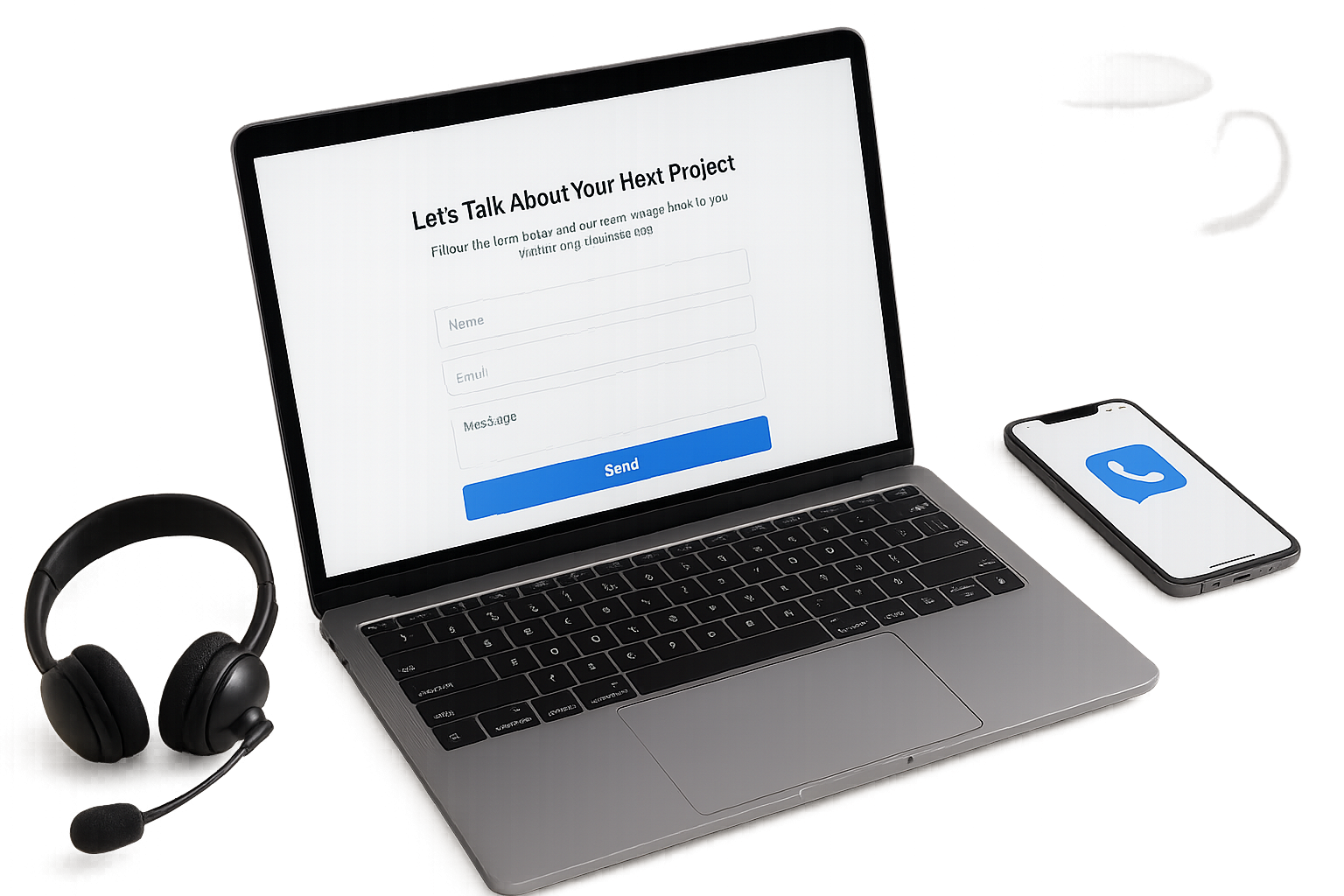Complete Security Audits for Websites and Web Resources: Ensure Your Information Security

What Does a Comprehensive Website Security Audit Include?

Understanding the need for a strong website security audit is essential in today’s digital landscape. With the increasing number of cyber threats, ensuring your web resource is secure is not just a luxury—it’s a necessity. A web resource information security audit helps identify vulnerabilities in your website, enabling you to protect sensitive data and customer information effectively.
Key Elements of a Security Audit
So, what does a security audit include? Here’s a breakdown of the key elements:
- ⭐ Vulnerability Assessment: Identifying weaknesses in your system that hackers could exploit.
- ⭐ Configuration Review: Evaluating the settings of your server and applications to ensure optimal security measures are in place.
- ⭐ Access Control Checks: Ensuring only authorized personnel have access to sensitive areas of your website.
- ⭐️ Malware Scanning: Conducting thorough scans for viruses and malware that could compromise your site.
- ⭐ Compliance Checks: Confirming adherence to necessary regulations, such as GDPR or PCI DSS, which can affect how you handle customer data.
- ⭐ Firewall Review: Assessing the strength of your firewall settings and overall network security.
- ⭐ Incident Response Plan: Analyzing your preparation for dealing with potential security breaches.
Real Stories from Our Clients
One of our clients, a local e-commerce store, experienced repeated hacking attempts that compromised customer data. They contacted us for a website security audit after learning that their basic security measures were insufficient. Through our comprehensive assessment, we found several vulnerabilities related to outdated plugins and weak passwords. After implementing our recommendations, including regular updates and enhanced monitoring, the client has reported zero incidents of data breaches in over a year! ⭐
Another client, a financial service provider, was uncertain about how often should a security audit be conducted. After our audit, we discovered that their systems were not aligned with current best practices. By scheduling quarterly audits, they can stay ahead of emerging threats, ensuring their clients financial information remains safe and secure.
Why Regular Audits Matter
Statistics show that 60% of small businesses that suffer a cyber-attack go out of business within six months. Regular web resource information security audits can significantly reduce this risk. The cost of performing a security audit can be a fraction of the potential losses from a cyber-attack. For example, if a security audit costs around 300 EUR, the potential loss from a data breach might easily surpass thousands of euros, not counting reputational damage.
Expert Advice on Security Management
Our experts recommend conducting a website security audit at least once every six months or whenever you make significant changes to your website. Regular checks help maintain robust security practices. Additionally, always keep your software updated—outdated software is one of the most common vulnerabilities that hackers exploit.
Call to Action
Ready to strengthen your website’s security? ⭐ Contact us today at [email protected], or visit our website nexrilo.com to schedule your comprehensive website security audit. Ensure your business is secure and have peace of mind! Our team of professional specialists is here to provide all services in one place with a guarantee of satisfaction. Dont wait until its too late!
Frequently Asked Questions
-
What is a website security audit?
A detailed analysis of your website to identify vulnerabilities and improve security. -
How often should I conduct a security audit?
Ideally, every six months or after significant system changes. -
What does security audit include?
Vulnerability assessments, configuration reviews, access control checks, and more. -
Why do I need a security audit?
To protect your website from potential cyber threats and ensure compliance. -
Can I perform a security audit myself?
While you can do basic checks, professional audits are recommended for thorough assessments. -
How long does a security audit take?
Depending on the website complexity, it can take from a few hours to several days. -
What are the costs involved in a security audit?
Costs can vary, typically starting around 300 EUR. -
Will I receive a report after the audit?
Yes, we provide a detailed report with findings and recommendations. -
How can I improve my websites security?
Regular audits, software updates, strong password policies, and monitoring. -
What happens if vulnerabilities are found?
We will provide a plan to address these vulnerabilities and enhance your security.
How to Conduct a Website Security Audit: A Step-by-Step Guide for Ensuring Your Web Resource Information Security

Conducting a website security audit is vital for safeguarding your online presence. In an age where cyber threats loom large, understanding how to conduct a website security audit can protect your business and customer data. Let’s dive into a simple, step-by-step guide to ensure your web resource is secure.
Step 1: Define Your Scope
Before you jump into the technical aspects, you need to define the scope of your audit. Identify which parts of your website you want to review. Are you focusing on the entire website or just specific applications? Understanding your focus area will streamline the process and make it more effective. ⭐
Step 2: Gather Necessary Tools
Equipping yourself with the right tools is crucial. Here’s a list of recommended tools that can aid your audit:
- ⭐ Nmap: For discovering hosts and services on your network.
- ⭐️ OpenVAS: A comprehensive vulnerability scanning tool.
- ⭐ Burp Suite: Great for testing web application security.
- ⭐ Google Analytics: To track user behavior and identify suspicious activities.
- ⭐️ SSL Labs: To check the configuration of your SSL certificate.
Step 3: Conduct a Vulnerability Assessment
Start your audit by performing a vulnerability assessment. This process involves scanning your website using the tools mentioned above. Look for common weaknesses such as:
- ⭐ Outdated software and plugins
- ⭐ Unused or unpatched components
- ⭐️ Weak passwords and authentication mechanisms
- ⭐ Insufficient encryption protocols
Step 4: Review Your Permissions and Access Control
Scrutinize who has access to your website and what permissions they have. Make sure only authorized personnel can access sensitive data. This step is critical in minimizing vulnerability points. Review user accounts and permissions regularly to ensure they align with current roles. ⭐
Step 5: Conduct a Compatibility and Configuration Review
Next, check your server and application configurations. Poor configurations can create loopholes for attackers. Some aspects to review include:
- ⚙️ Server settings and environment variables
- ⭐️ Security headers like Content Security Policy (CSP)
- ⭐ Database permissions
If you aren’t sure about optimal configurations, you can refer to best practices available online or consult a professional. ⭐
Step 6: Scan for Malware and Malicious Activity
Use security tools to scan your website for malware. This process will help identify any unwanted files, scripts, or code that may have been injected into your system by hackers. Further, monitor server logs for any suspicious activities. If you identify any malware, act immediately to cleanse your site and patch the vulnerabilities that allowed the infection. ⭐
Step 7: Regular Reporting and Documentation
After conducting your audit, document your findings in a detailed report. This report should include:
- ⭐ Vulnerabilities discovered and their risk levels
- ⭐ Proposed solutions and best practices for resolution
- ⭐ Recommendations for future integrity checks
Regular reporting not only helps with future audits but also communicates potential issues to relevant stakeholders. ⭐
Step 8: Implement a Robust Response Plan
Having a solid incident response plan is crucial. This plan should detail how to react in case of a security breach, including:
- ⭐ Immediate actions to secure the website
- ⭐ Contact details for response teams
- ⭐ A communication strategy for stakeholders and customers
When to Audit Your Website?
Finally, you might be wondering, how often should a security audit be conducted? Regularity depends on the size and complexity of your website, but a good rule of thumb is to conduct a comprehensive audit every 6 months. Additionally, you should evaluate your site after any major updates or security incidents. This approach will ensure your web resource information security audit remains effective over time. ⏰
Take Action Now!
If conducting a website security audit seems overwhelming, dont worry! Here at nexrilo.com, we have over 20 years of experience in web security. Our team of professionals provides comprehensive audits and security solutions tailored to your needs. ⭐ Call us today at [email protected] or visit our website to get started. Don’t leave your website’s security to chance—let us help you ensure peace of mind!
Frequently Asked Questions
-
What is a security audit?
It’s a systematic evaluation of a website to identify vulnerabilities and enhance security. -
How long does it take to conduct a security audit?
It can take anywhere from a few hours to several days, depending on the websites complexity. -
Do I need professional help for a security audit?
While some steps can be done in-house, a thorough audit is better performed by IT professionals. -
What tools can be used for a security audit?
Tools like OpenVAS, Nmap, and Burp Suite are commonly used in audits. -
What should I do if a vulnerability is found?
Address it immediately, patch the security loophole, and monitor the site for further issues. -
How often should a security audit be performed?
Ideally, conduct one every 6 months and after major changes to the site. -
Can I automate my security audit?
Some aspects can be automated, but manual checks are also essential for thoroughness. -
What happens if my site is hacked?
Implement your incident response plan and seek professional help to minimize impact. -
Is a security audit expensive?
The cost can vary, but its typically a fraction of the potential loss from a security breach. -
Can security audits improve my websites ranking?
A secure website can enhance trust and improve overall SEO performance!
Fill out the form below and our team will reach out within one business day
